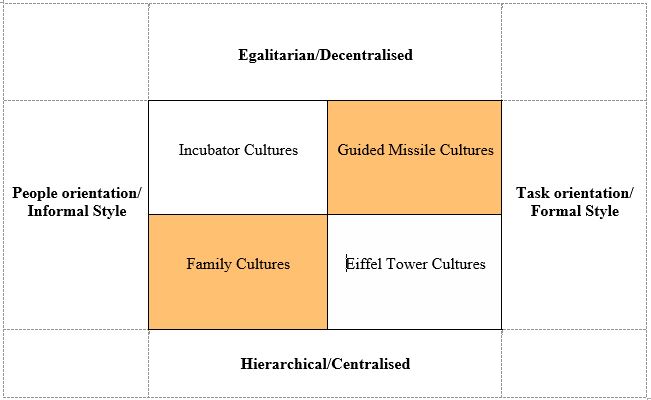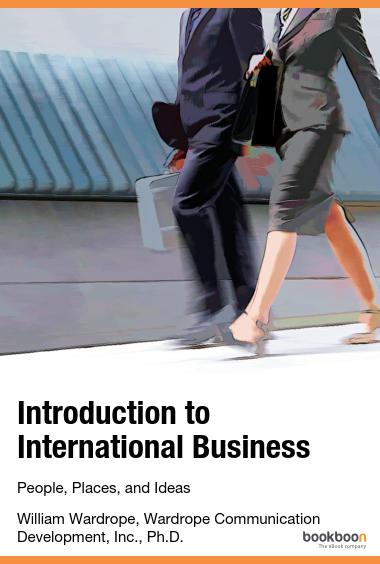International Business: Culture and the Global Organisation

Picture an international organisation: a large group of people involved in the international process. How does this collection of people, who are coming from very different cultural backgrounds, unite to accomplish the objectives of a single organisation?
A key criterion is organisational culture. The organisation itself must create an atmosphere which fosters mutual understanding and cooperation among all its members, both domestic and international. This means that there need to be shared values and beliefs that allow the members to understand their roles and the norms of the organisation.
According to Trompenaars (1994) there are four general types of organisational cultures:
- Incubator cultures are people-oriented and egalitarian; they foster creativity, innovation and the development of the individual. Examples: Scandinavian countries
- Family cultures are people-oriented and hierarchical; they place value on familial-type relationships, loyalty and deference to authority. Examples: Japan, Spain and India
- Guarded Missile cultures are task-oriented and egalitarian; they emphasise a team approach to work and performance. Examples: United States, United Kingdom
- Eiffel Tower cultures are task-oriented and hierarchical. In these organisations, bureaucracy, structure and roles are important. Examples: Germany, Austria
What does this mean for international business?
It is essential for global organisations to keep this diversity of corporate cultures in mind with regard to the management of one’s own company as well as in interactions with others. The responsibility of management is to understand the cultural differences and develop strategies that are equally acceptable in all countries involved.
When expanding an organisation beyond the country of its origin into foreign markets, changes are apt to occur within the company in order to adapt to the different business cultures. This process is regarded as a company’s internationalisation process: an incremental path to adapting resources, objectives and operating procedures accordingly.
Staffing of Multinational Companies
One important aspect of international business are the hiring practices of a company, as they reflect and perpetuate its international orientation. Yet those practices are strongly affected by a variety of factors, such as political, legal, economic, socio-cultural, and firm-specific constraints. Companies must decide strategically how to staff their various outlets and how to help acclimate both foreign and domestic employees to a culturally diverse work environment.
Strategy
The successful operations of any contemporary organisation, multinational or domestic, are governed by strategic planning in order to determine the major goals of the organisation. Global strategies, which “target growth on a global level for sales of products or services“ (Business Dictionary), are required to achieve those goals using the resources available.
Furthermore, a company’s commitment to international business may be part of its mission statement, which is usually publicised on its website and also serves marketing purposes. For example, Honda’s philosophy reads, “Maintaining a global viewpoint, we are dedicated to supplying products of the highest quality, yet at a reasonable price for worldwide customer satisfaction” (Honda).

